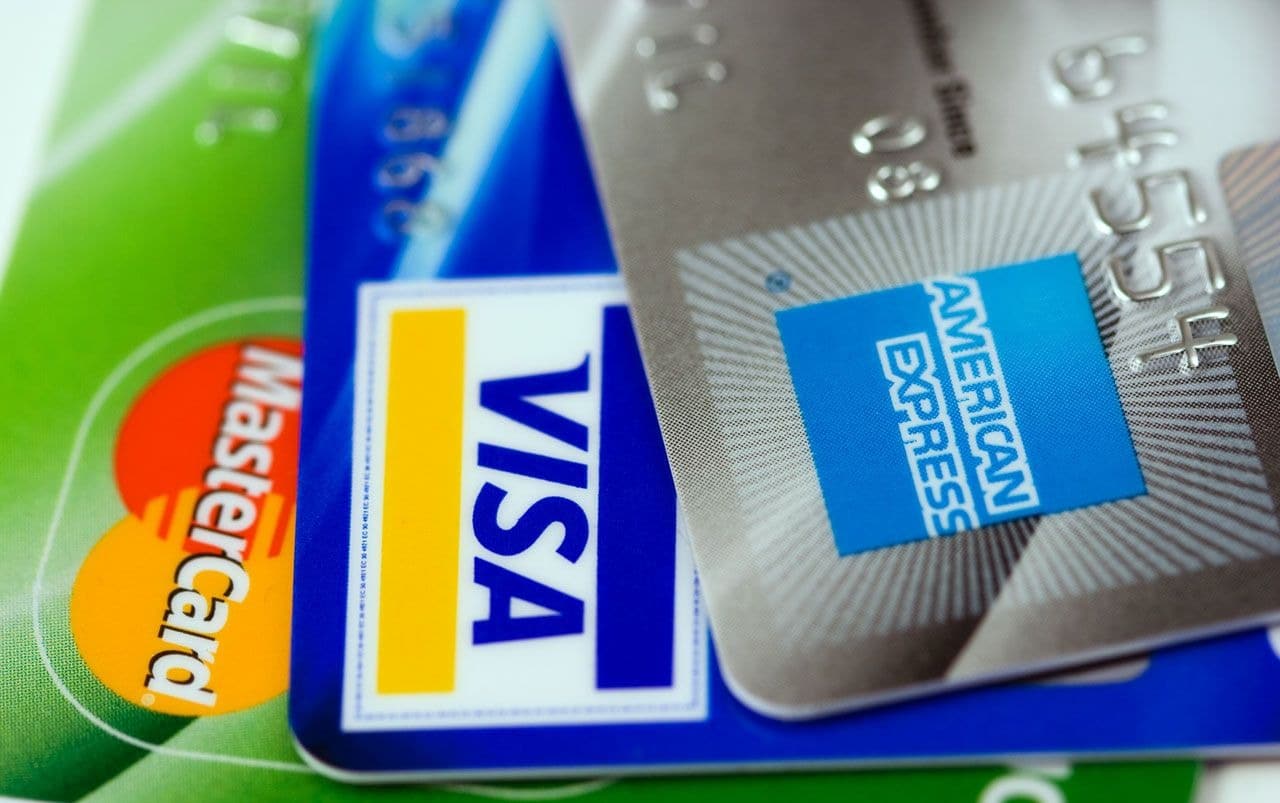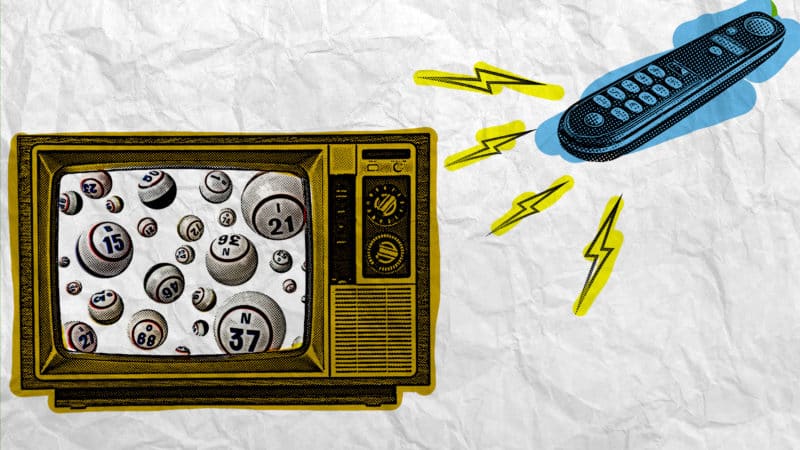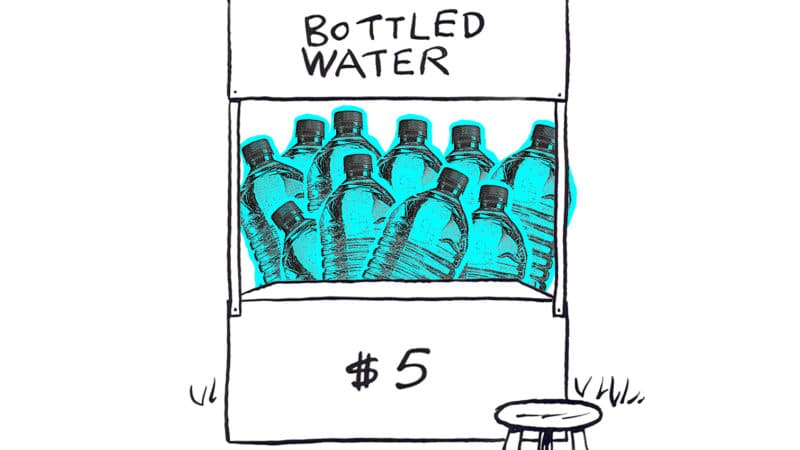By Dori Zinn
Less than 40 percent of Americans have enough savings to cover an unexpected $1,000 expense, like a car repair or medical bill.
Another 18 percent would have to put the expense on a credit card, meaning they’ll need to pay interest on top of the money they borrow. This is all according to a survey from Bankrate, a personal finance website. If you don’t have cash on hand to cover an emergency, you could turn to credit cards like that 18 percent, but what if you have bad credit and don’t qualify for one?
These financial issues can lead people to the brink of homelessness, with bad credit making a dire situation even worse. But, you can take steps now to build up your credit and make sure you have options whenever an emergency comes up.
What is credit and why does it matter?
Credit is the act of borrowing money that you’ll pay back later. It comes in the form of credit cards or loans — like home, auto, student, or personal. Usually it’s paid over the course of a few months or years, accruing interest along the way.
Interest is the charge from lenders or credit card issuers for letting you borrow money. It’s a percentage of the loan or charges you build up over time, with most interest charges determined by your credit score and history. The higher your credit score, the lower your interest rate.
Potential lenders and credit card issuers check this credit score — a three-digit number that reflects your credit history — before lending. If your credit score is low, or you don’t have much, or any, sort of history with borrowing money through banks or credit unions, some lenders might be wary, possibly rejecting your application to borrow money outright.
What makes up a credit score
There are many variations of credit scoring models, but the most widely recognized one is the FICO score. Your FICO credit score and history are made up of a few different aspects.
- Payment history: This makes up a large portion of your total FICO credit score. The more on-time payments you have, the more your credit score will climb. But even one late or missed payment can cause your credit score to plummet.
- Amounts owed: This is how much credit you’re using compared to how much available credit you have. Continually maxing out your credit cards and only making minimum payments results in high credit usage and looks risky to lenders, leading them to believe that you could default. Most lenders want to see borrowers keep their amounts owed to under 30 percent of their possible credit.
- Length of credit history: How long you’ve had credit is not as important as your payment history, but it is a factor. The longer you hold onto active credit cards, the higher your score goes, even if you use those cards sparingly.
- New credit: While new credit applications can cause a small dip in your total credit score, it’s only temporary. Keep your new applications low, preferably around one to three a year.
- Credit mix: Lenders like to see a variation of credit, including different credit cards and loans. You don’t have to have a lot, but having a few different types of credit can give your score a little boost.
Where to check your credit score
Many banks and credit card issuers have a credit score feature online or through their app. You can also check it at Mint or Credit Karma.
You can also check your credit report — which details your credit history — at AnnualCreditReport.com. Checking your credit score and report is free.
Beginner tips to bring up your credit score
If you’re just starting out, here are some tips to boost your credit score:
Credit builder loan
This is where you make fixed payments to a lender upfront, then you get access to that lump-sum loan at the end of the term. This is rather than a traditional loan, where you receive a lump-sum amount, then you pay back a fixed amount every month for a set amount of time.
A lot of community banks and credit unions offer credit builder loans, but compare lenders to see which ones have the best repayment terms and lowest interest rates.
Secured credit card
With a normal credit card, purchases are made up to a certain approved credit limit. At the end of the cycle — usually a month — you pay at least the minimum payment, but preferably the entire balance to avoid interest charges.
For secured credit cards, you pay the limit upfront, usually $500 or $1,000 in cash, then make purchases up to this limit. Your limit goes down as the money is used up, and each month you pay upfront again. After a few months of on-time payments and strong credit usage, you could apply for a traditional credit card.
Authorized user
Ask a trusted friend or relative if they’ll let you become an authorized user on their credit card. If you do so, your credit score will get a boost from their strong credit usage. This only works if the friend or relative has a good or excellent credit history though. Every time they pay off their card in full and keep balances low, you get rewarded for their good behavior. You don’t have to use a card to reap these benefits.
Since this is to build credit, make sure you get a lender that reports your payments to the three major credit bureaus that create your credit report: Experian, Equifax, and Transunion.
How to avoid bad credit
You can use credit cards to build your credit score without falling into deep debt with some simple rules.
- Pay in full every month. Paying off your balance at the end of the month essentially means you get an interest-free loan every month. Set up automatic payments so you never miss a payment.
- Keep usage low. Even if you get approved for a $15,000 credit card limit, that doesn’t mean you need to spend $15,000. Only make purchases you can pay off at the end of the month.
- Ask for help when you need it. If you can’t afford to get a credit card or loan on your own, ask a friend or relative for help. Getting a cosigner with good or excellent credit increases your chance of qualifying and getting the lowest interest rate offered.
- Use on needs — not wants. Use your credit card like a debit card, only spending what you can pay at the end of the month, and only use it to pay for needs like groceries or gas. This helps you avoid unnecessary spending.
Remember that paying off your bill in full every month is one of the best ways to avoid interest charges and falling into massive credit card debt.



